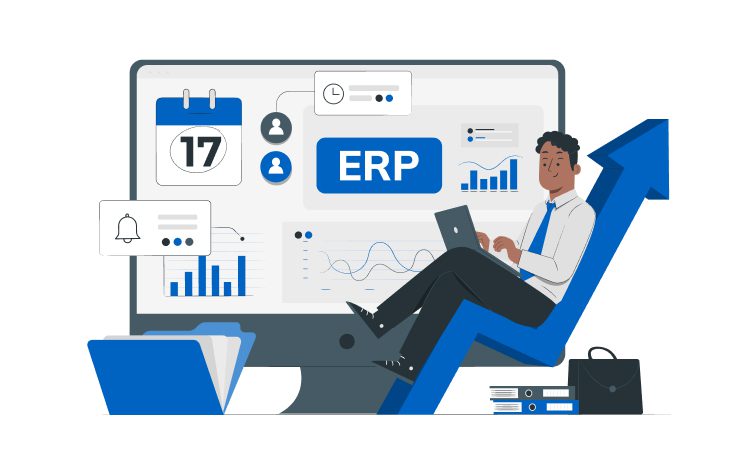
How to Build Custom ERP: a Full Guide



If you are a startup or an expanding tech company, an ERP (Enterprise Resource Planning) solution can be a powerful tool to streamline operations, improve productivity, and drive growth. ERP solutions provide a centralized platform to manage critical business processes such as finance, human resources, supply chain management, etc.
This guide covers everything from comparing the custom and off-the-shelf options to best practices for building a successful custom ERP solution.
Content
Let’s start with clarifying what exactly is meant by an ERP solution. This software is designed to improve efficiency by providing a centralized database for all business data.ERP application development offers numerous benefits, including improved operational efficiency, streamlined processes, enhanced data management, and better decision-making capabilities.
ERP software can be customized to meet an organization’s specific needs and can include a wide variety of features, or you can choose ready-made solutions. ERP software development aims to create a solution that can manage all sides of a business, from accounting and logistics to sales and marketing, in a unified and efficient manner.
Nowadays, it’s becoming increasingly apparent that startups must focus on operational efficiency and transparency in their business processes. This factor contributes to the rapid growth of ERP software development. Grand View Research predicts, in 2022, the market size for ERP software reached an impressive USD 54.76 billion and describes a CAGR of 11.0% from 2023 to 2030. Additionally, using ERP software reduces administrative costs by 22%.
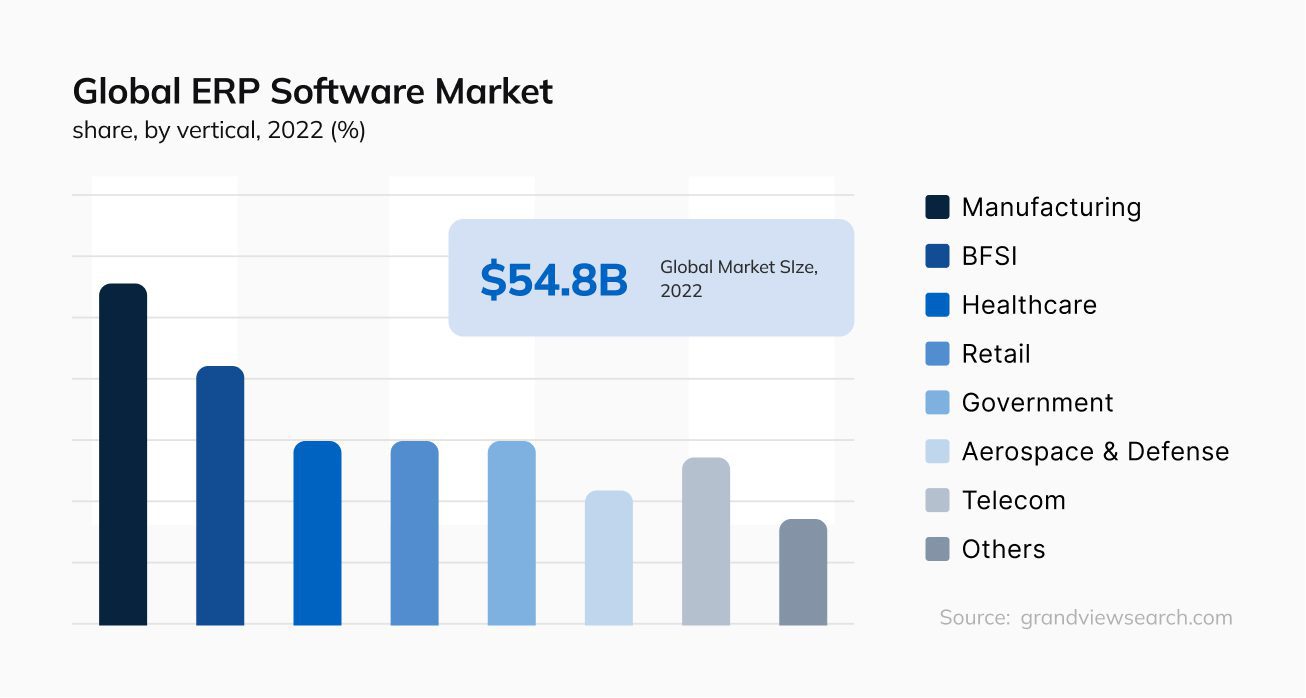
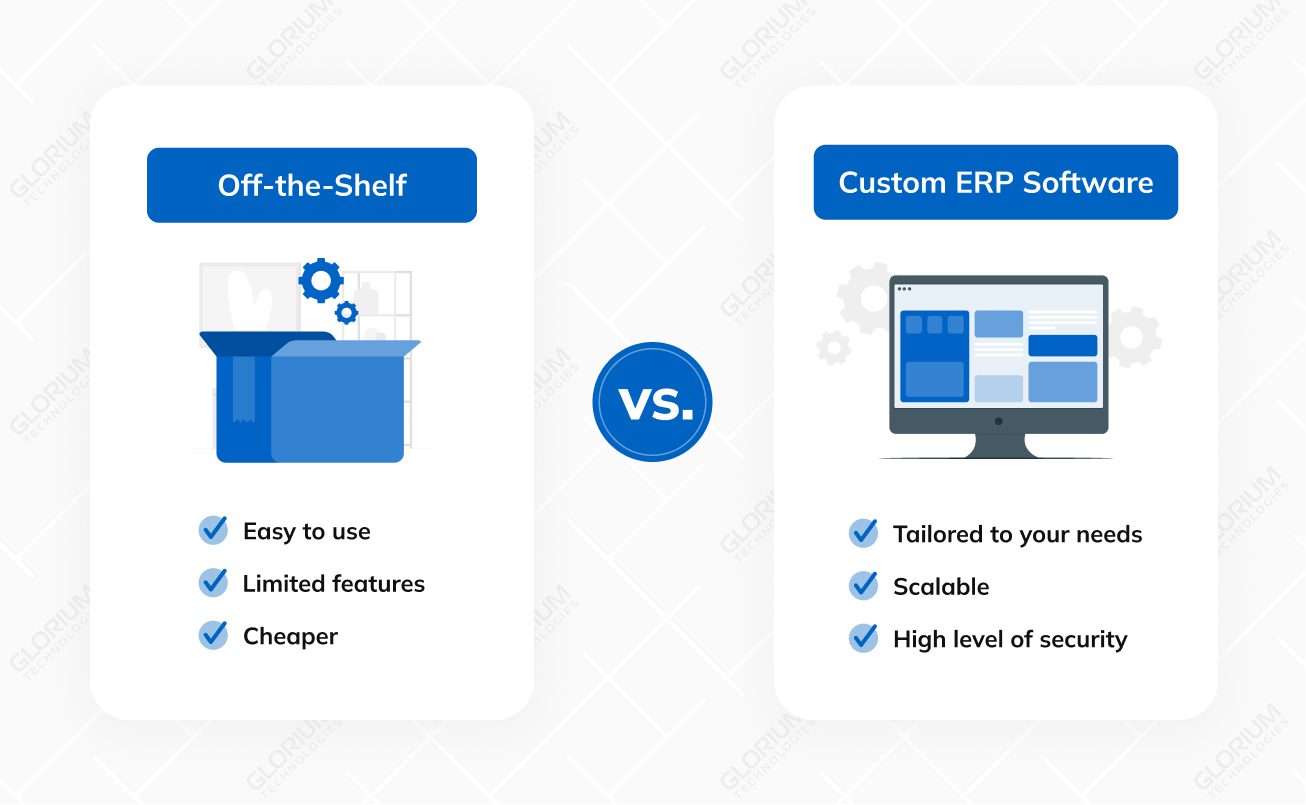
Off-the-shelf ERP solutions are pre-built software packages developed to meet the requirements of businesses across multiple industries. Ready-made solutions offer a wide range of features and functionality, such as financial management, inventory management, and customer relationship management, and are often sold on a subscription basis.
One of the main advantages of off-the-shelf ERP solutions is that they are often less expensive and quicker to implement than custom solutions. Generally, it can be easier to use them, as such solutions come with pre-built templates and workflows.
However, several things could be improved in off-the-shelf ERP solutions. First, they still need to be fully developed for your business, as enterprise resource planning software is designed to be general-purpose solutions. It may lead to inefficiencies in your workflows or a lack of integration with other software systems.
On the other hand, a custom ERP system is built specifically for your business needs and workflows. They offer a high level of customization, allowing you to build the exact features and functionality your business requires.
One of the main advantages of a custom ERP system is that it is fully designed to meet the needs of businesses, which can lead to increased efficiency and productivity. They can have more security levels, as they can be developed to meet your security requirements.
However, custom ERP software development can be more expensive and time-consuming than off-the-shelf software. They need a high level of expertise and may take longer to develop and test. Additionally, custom ERP software may require ongoing maintenance and support, which can add to the total cost of ownership over time.
Custom ERP solutions are beneficial for a wide range of businesses and organizations that require tailored software systems to meet their specific needs. Here are some examples who may need custom ERP software.
- Startups and small businesses: Startups and small businesses often have unique workflows and requirements that may not be fully addressed by off-the-shelf ERP solutions.
- Mid-sized and large enterprises: As businesses grow in size and complexity, their needs become more diverse and specialized. Custom ERP solutions enable mid-sized and large enterprises to build a system that integrates various departments, optimizes operations, and supports their specific industry requirements.
- Businesses with complex workflows: Some organizations have intricate workflows involving multiple departments, geographically dispersed teams, or intricate supply chains.
- Businesses with specific compliance requirements: Certain industries, such as healthcare, finance, or government, have stringent compliance regulations. Custom ERP solutions can be developed to ensure adherence to these regulations, such as HIPAA or GDPR, and to implement necessary security measures to protect sensitive data.
- Businesses with unique product or services: Companies that offer unique products or services may require ERP systems that incorporate specialized features and functionalities. Custom ERP allows businesses to build systems that support their unique offerings and provide a competitive advantage in the market.
- Businesses with expansion plans: Companies with plans for expansion, mergers, or acquisitions can benefit from custom ERP solutions that can be scaled and adapted to accommodate new locations, additional users, or increased transaction volumes.
Roman MatsukatovProduct Manager, Glorium Technologies
Custom ERP solutions can also be more efficient and productive than off-the-shelf solutions. They can be integrated with other software systems, allowing you to streamline operations and automate manual processes. Additionally, custom ERP solutions can be designed with scalability in mind, allowing your business to grow and expand over time.
Read more about real estate enterprise resource planning software development.
ERP software development as a complex process requires careful planning and execution. In order for an ERP system to be successful, it must have a variety of must-have features that enable it to meet the needs of businesses of all sizes. These features include robust reporting tools and seamless integration with other business applications.
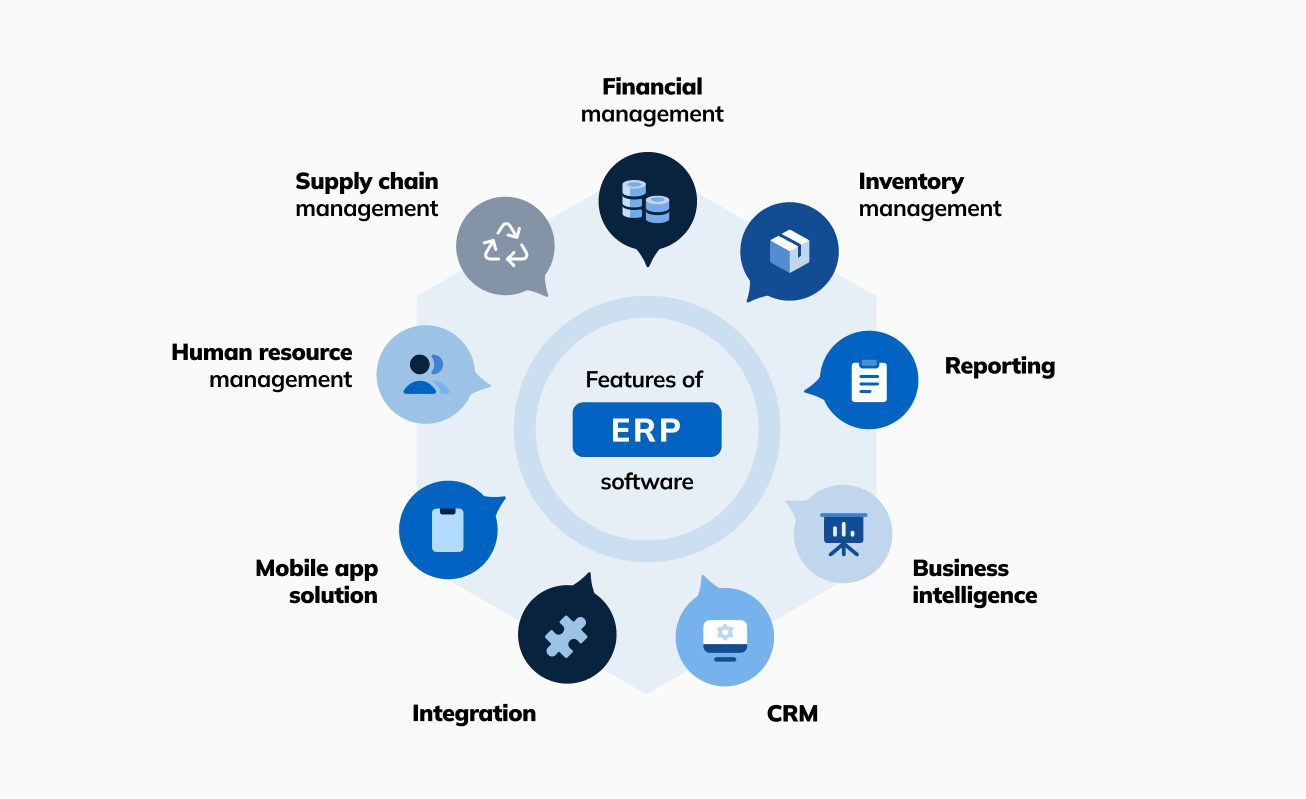
By understanding what must-have features are necessary for ERP software development, businesses can ensure that their ERP system is effective and efficient and can support their ongoing growth and success.
Having a reliable financial management module as part of your ERP software development is crucial to ensure that your financial processes are streamlined and that you can generate accurate financial reports. This module should include features such as accounts payable and receivable, general ledger, and financial reporting. It should also be able to handle multi-currency transactions, tax calculations, and budgeting and forecasting.
Effective inventory management is essential for businesses dealing with physical goods. It can make or break the business’s profitability, and an ERP system is critical to help manage it. An ideal ERP software development should offer features like real-time inventory tracking, automated ordering, and forecasting capabilities.
A good ERP system should always come equipped with an efficient CRM module that can help businesses manage their customer relationships more effectively. This module should contain many features that enable communication between businesses and customers, allowing them to respond quickly and accurately to queries and complaints.
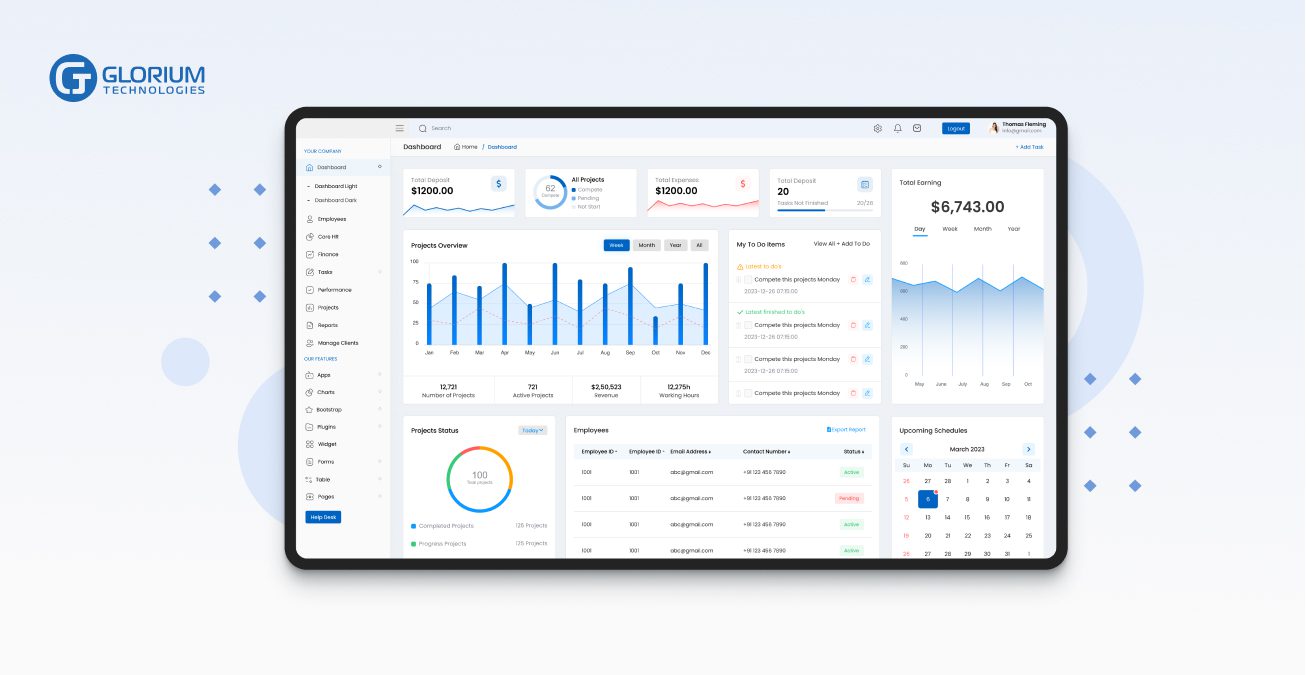
One of the critical components of a good CRM module is contact management. This feature allows companies to store and manage customer data, including purchase history, contact details, and communication history. With this information readily available, businesses can easily identify customer needs and provide personalized services.
Another vital feature of a CRM module is lead and opportunity tracking. This feature helps companies to track their sales leads from initial contact to final sale. It also produces insights into customer behavior and preferences, enabling businesses to tailor their offerings to meet customer needs.
Customer service and support are also crucial features of a CRM module. This feature allows businesses to manage customer inquiries and complaints efficiently. It provides a platform for customers to ask questions, report issues, and receive prompt responses. With this feature, businesses can offer excellent customer service, leading to customer loyalty and repeat business.
As a business grows, managing employees can become a daunting task. That’s why an ERP software development should also include a comprehensive HRM module that allows businesses to manage their employees more effectively. This module should consist of features such as employee data management, payroll processing, time and attendance tracking, and benefits administration.
This module should provide the necessary tools to track inventory, manage orders, and maintain good relationships with suppliers. Inventory tracking is a vital part of software development erp.
With a robust BI and reporting feature, ERP systems can help you gain insights into your operations and make informed decisions. You can generate reports on key metrics such as sales, inventory, and financial performance to assess the performance of your business. Having the ability to generate these reports within the ERP system can save you time and money.
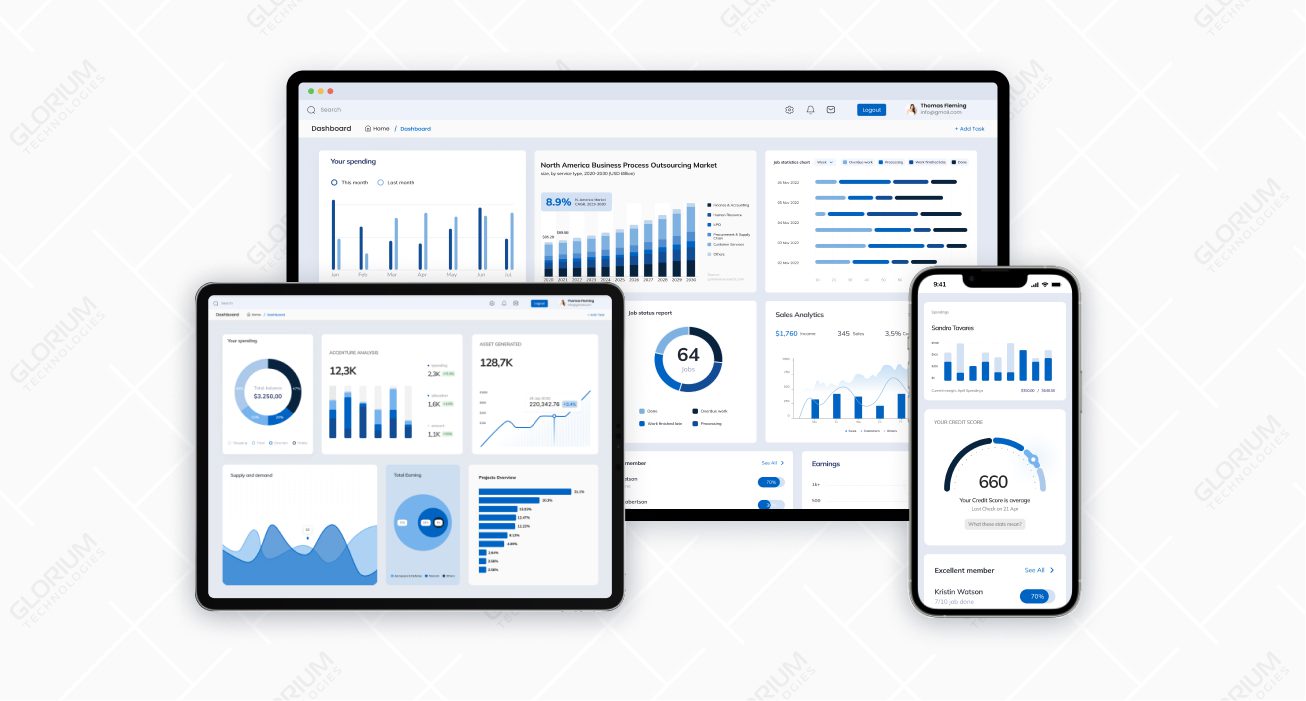
Integrating the system with other software applications is one of the key features of ERP systems that can enhance its functionality and usefulness. Integration is equally important because it allows businesses to leverage the power of other software applications they use daily.
In today’s fast-paced business environment, accessing critical data and functionality on the go is more important than ever. That’s why an ERP application that offers mobile access is a must-have for any company that wants to stay ahead of the game.
This flexibility and convenience can help boost productivity and efficiency, as employees are no longer tied to their desks or laptops. Regarding mobile access, two main options are available: a web-based interface or a mobile app. A web-based interface is accessed through a mobile browser and offers the same features and functionality as the desktop version of the ERP application development.
Employees can access the ERP application from any device with an internet connection without installing additional software. A mobile ERP application is a dedicated application installed on the employee’s smartphone or tablet. ERP application development offers a more streamlined experience, as the app is optimized for use on a smaller screen and can offer additional features such as push notifications and offline access.
However, it does require employees to download and install the app on their devices, which can be a barrier to adoption. Regardless of your choice, mobile access is crucial for any modern ERP system. By allowing employees to access critical data and functionality on the go, you can help increase productivity and efficiency while keeping your business competitive in today’s fast-paced market.
The ERP software development process typically involves several vital steps to ensure a customized ERP system’s successful creation and implementation. Here are five essential steps in the ERP software development process:
The first step is to gather requirements by thoroughly understanding the organization’s business processes, workflows, and specific needs. It involves close collaboration with key stakeholders, department heads, and end-users to identify pain points, challenges, and desired outcomes.
Here are the main to define the scope of the ERP system and document clear and comprehensive requirements.
In this step, the team designs the architecture and framework of the ERP application development. They create a system design that maps out the modules, functionalities, and features of the ERP system based on the gathered requirements. Planning also involves defining the technical specifications, such as hardware infrastructure, software technologies, databases, and integration points with other systems.
With the system design in place, the development team builds the ERP system. They write code, develop the necessary modules, and customize the solution to fit the organization’s specific needs. It includes implementing workflows, data structures, user interfaces, and integration points as defined in the system design phase.
Once the development phase is complete, rigorous testing and quality assurance measures are conducted to ensure the ERP system functions as intended. It involves various testing methodologies. Bugs, issues, and performance bottlenecks are identified and addressed, ensuring the system operates smoothly, accurately, and securely.
The ERP system is deployed to the production environment after successful testing. This step involves installing the software, configuring settings, and migrating data from existing systems, if applicable.
Training sessions are conducted to familiarize end-users with the new system and its functionalities. It ensures a smooth transition and adoption of the ERP system throughout the organization.
It’s important to note that the ERP software development process is not a one-time event. Once the system is deployed, ongoing maintenance, support, and continuous improvement are necessary to address evolving business needs, industry changes, and technological advancements.
By following these five steps, businesses can successfully navigate the ERP software development process and create a customized solution that optimizes their operations, enhances productivity, and enables data-driven decision-making.
Building a custom ERP solution can be a challenging process, and there are several risks and challenges to keep in mind, such as:
It’s important to implement robust security measures, such as encryption, access controls, and regular security audits. It’s also important to comply with industry regulations and data privacy laws, such as HIPAA or GDPR, and to conduct regular assessments to ensure that your custom ERP solution remains compliant over time.
If you’re looking to outsource your software development erp, it’s important to choose a reliable company that can deliver the quality and results you’re looking for. So how to choose a reliable outsourcing company for ERP software development?
Before you start looking for an ERP software development company, it’s important to determine your needs and requirements for your ERP. Consider factors, business processes, such as your budget, timeline, and the specific features and functionalities you require from your ERP software.
When it comes to ERP software development, experience, and expertise are crucial. Look for an outsourcing company with a proven record of delivering high-quality ERP software. Does a company have experience working with similar software? This will ensure that they have a perfect understanding of your needs and can provide relevant and effective solutions.
Before choosing an ERP software development company, be sure to check the references and read reviews from past clients. Ask for case studies of past ERP software development projects they have completed to get an understanding of their capabilities.
Communication and collaboration are key factors in successful ERP software development outsourcing. Choose a company with a clear and transparent communication process in place. Check that they have the necessary collaboration tools and processes in place to work effectively with your team.
ERP software development requires a high level of technical expertise. Ensure that an outsourcing company has a team of skilled developers with experience in the specific technologies and platforms you require for your project.
Effective project management is crucial for successful ERP software development outsourcing. It should include clear timelines, milestones, and deliverables. They should also have a process for handling any challenges if they arise during the development process.
Finally, evaluate the outsourcing company’s pricing and contract terms. Look for a company that offers transparent and competitive pricing. They should also have clear contract terms that protect your interests and provide a clear scope of work.
In conclusion, choosing a reliable outsourcing company for ERP software development requires careful consideration and evaluation.
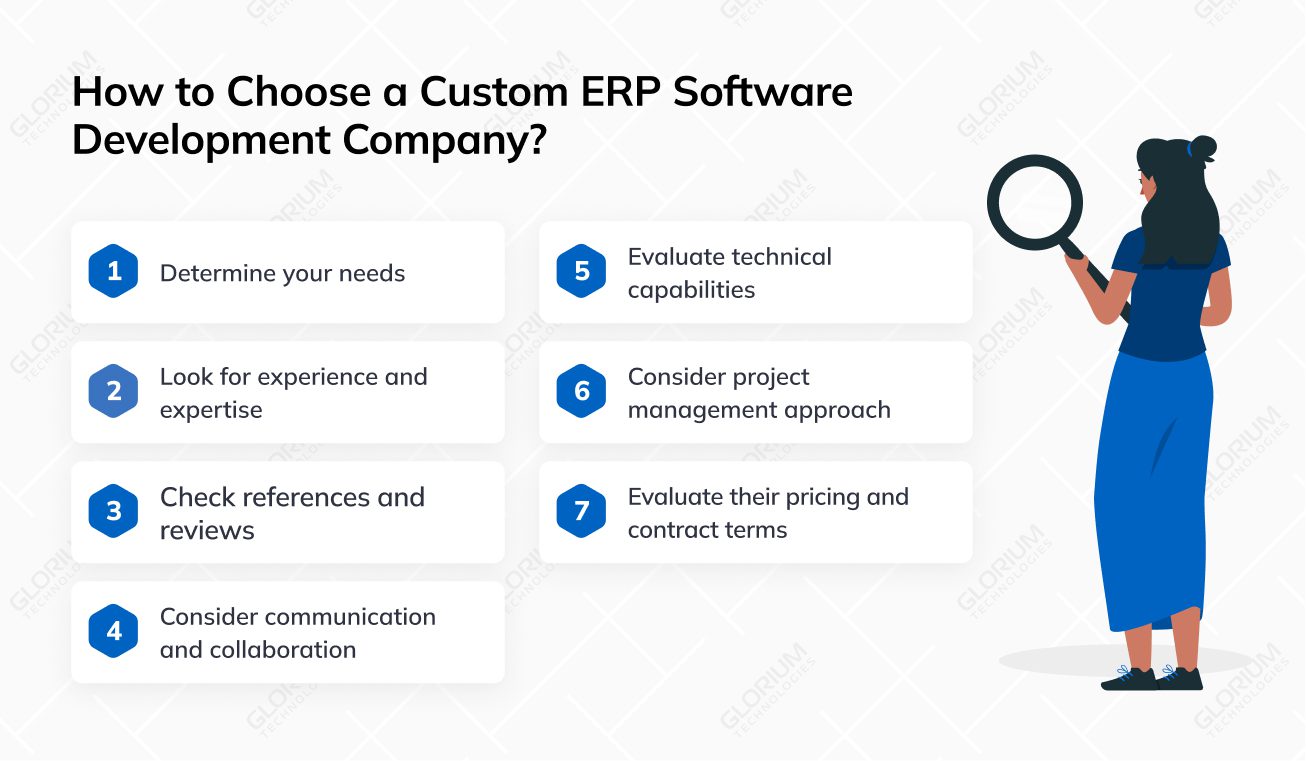
Our ERP software development services begin with a deep understanding of your business processes, workflows, and pain points. We collaborate closely with your team to gather requirements and analyze your specific needs.
Once your custom ERP solution is developed, we provide comprehensive support to ensure a smooth transition and successful implementation.
Partnering with us for custom ERP software development services means gaining a strategic advantage in optimizing your business processes, improving efficiency, and unlocking valuable insights from your data.
Unlock your full potential and drive lasting success for your organization, contact our managers.
ERP stands for Enterprise Resource Planning. In software development, ERP refers to a software system that helps businesses manage their core processes, such as financial management, inventory management, and human resources management.
Some advantages of using an ERP system include improved efficiency, increased productivity, better data management, and streamlined workflows.
An ERP system can benefit your business by helping you manage your core processes more efficiently, providing insights into key metrics such as sales and inventory, and supporting growth and expansion.
Key features of an ERP system include financial management, inventory management, customer relationship management, human resources management, supply chain management, business intelligence and reporting, customization and integration, and mobile access.
Custom ERP solutions are built specifically for your business needs and workflows, while off-the-shelf ERP solutions are pre-built software packages designed to meet the needs of a broad range of businesses.
Benefits of a custom ERP solution include a high level of customization and flexibility, increased security, and the ability to tailor the system to your specific needs and workflows.
Risks of building a custom ERP solution include higher development costs and longer implementation times, as well as the risk of scope creep and the need for ongoing maintenance and support.
Choosing the right ERP system for your business involves assessing your needs, defining key requirements and features, determining your budget and timeline, and evaluating vendors and development teams.
Building a custom ERP solution involves planning and scoping the project, selecting the right vendor or development team, designing and developing the solution, testing and quality assurance, implementation and training.
Measuring the success of your ERP system involves tracking key metrics such as productivity, efficiency, and profitability, as well as assessing user satisfaction and ROI.
The software development cost for ERP applications can vary depending on complexity, customization requirements, and the development team’s expertise. Additionally, services of erp software development company in USA can be more costly than in Ukraine.
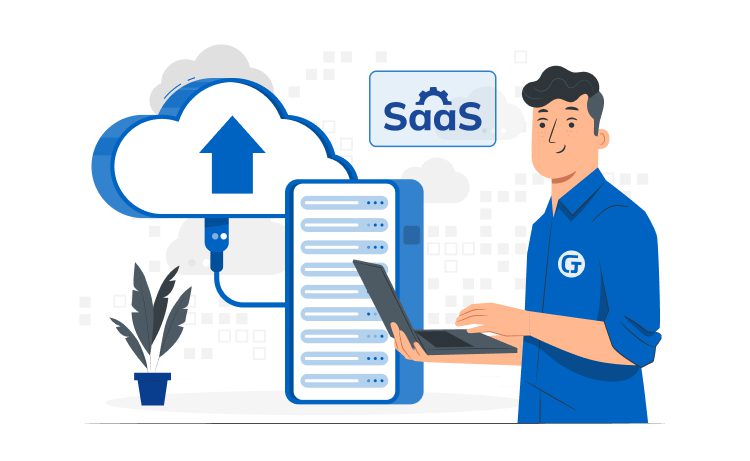
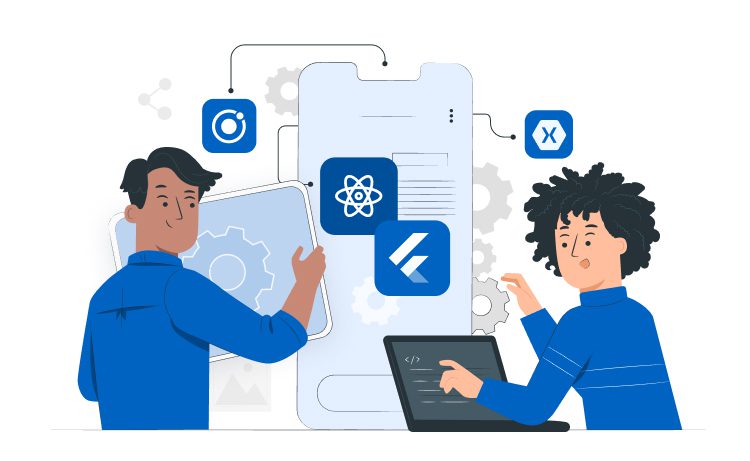
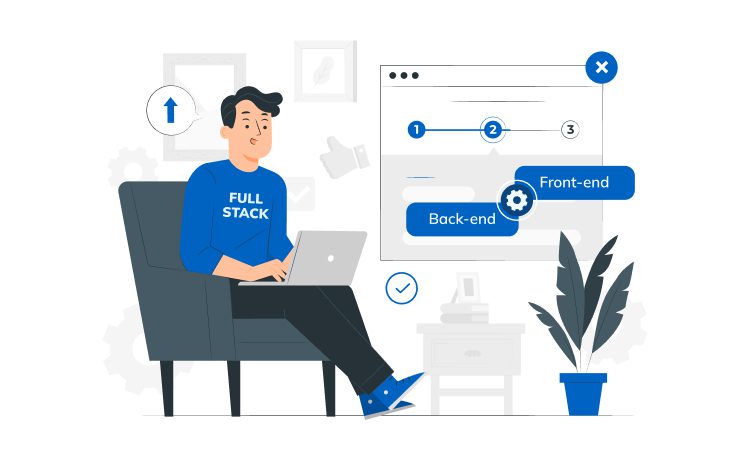

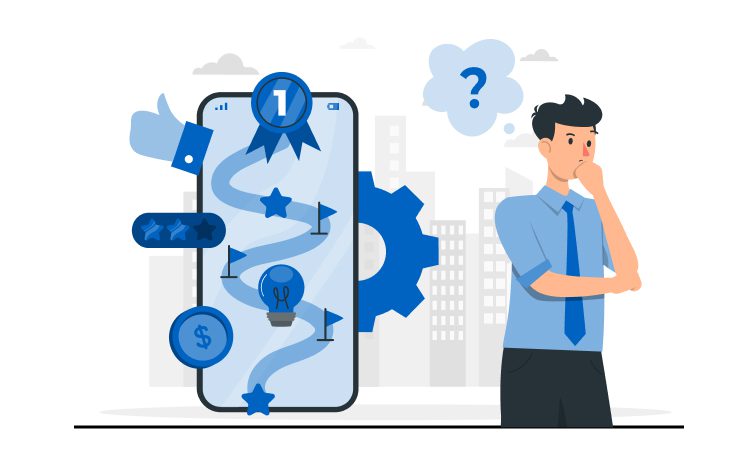
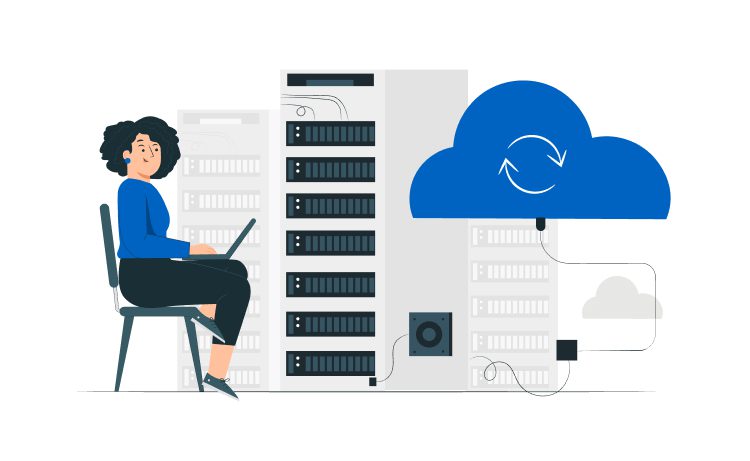
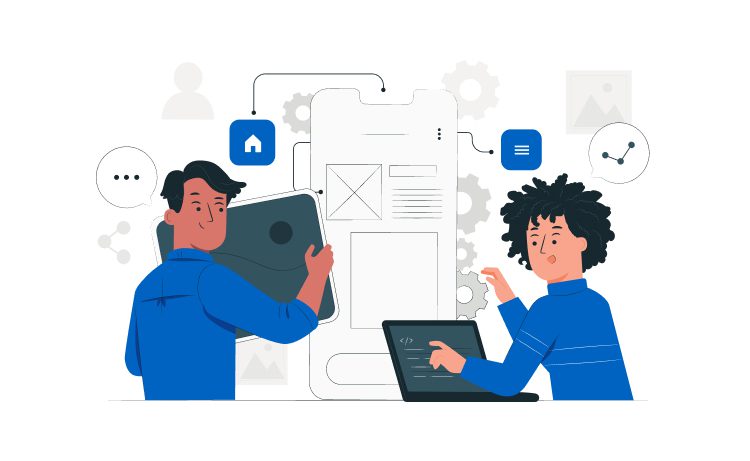
| Cookie | Duration | Description |
|---|---|---|
| cookielawinfo-checkbox-analytics | 11 months | This cookie is set by GDPR Cookie Consent plugin. The cookie is used to store the user consent for the cookies in the category "Analytics". |
| cookielawinfo-checkbox-functional | 11 months | The cookie is set by GDPR cookie consent to record the user consent for the cookies in the category "Functional". |
| cookielawinfo-checkbox-necessary | 11 months | This cookie is set by GDPR Cookie Consent plugin. The cookies is used to store the user consent for the cookies in the category "Necessary". |
| cookielawinfo-checkbox-others | 11 months | This cookie is set by GDPR Cookie Consent plugin. The cookie is used to store the user consent for the cookies in the category "Other. |
| cookielawinfo-checkbox-performance | 11 months | This cookie is set by GDPR Cookie Consent plugin. The cookie is used to store the user consent for the cookies in the category "Performance". |
| viewed_cookie_policy | 11 months | The cookie is set by the GDPR Cookie Consent plugin and is used to store whether or not user has consented to the use of cookies. It does not store any personal data. |